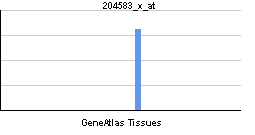Calcium, Dairy Foods and Prostate Cancer
For about a decade, a growing number of studies have shown a relationship between consumption of dairy foods and/or calcium and the development of prostate cancer. While calcium is critical for healthy bones, there is also evidence that too much of a good thing may not be so good for men when it comes to prostate health.
In 2001, for example, the Harvard School of Public Health conducted a study in which the researchers followed 20,885 US physicians for 11 years. During that time, 1,012 men developed prostate cancer. When the investigators looked at how much calcium in the form of dairy products the men normally consumed, they found that those who averaged more than 600 mg calcium daily had a 32 percent higher risk of prostate cancer than those who regularly consumed 150 mg or less.
The American Cancer Society notes that there is evidence that high intake of calcium, mainly through supplements, has been linked with a greater risk of prostate cancer, especially aggressive cancer.
Some other studies however have challenged the idea that dairy foods and/or calcium increase the risk of prostate cancer. One was published in 2009 (Park 2009) and involved data from more than 490,000 older men and women (ages 50 to 71 when the study started in the 1990s), with an average follow-up of seven years. The results of this study show that, in older men, intake of dietary calcium of up to 1,300 mg daily in the form of dairy and other foods had no impact on the risk of prostate cancer—neither increasing nor decreasing the risk. The men who got most of their calcium from food did, however, enjoy a 30 percent less risk of cancer of the esophagus, a 20 percent less risk of head and neck cancer, and a 16 percent less chance of colon cancer when compared with men who consumed low amounts of calcium.
In a study conducted several years earlier and by some of the same researchers, the impact of calcium and dairy foods on the risk of prostate cancer was evaluated in 293,888 men who were followed up for six years. The researchers did not find an association between total and supplemental calcium intake and total and nonadvanced prostate cancer, but they did see a relationship between total calcium and advanced and fatal prostate cancer. Skim milk, but no other dairy foods, was associated with an increased risk of advanced prostate cancer, while calcium from nondairy foods was associated with a lower risk of nonadvanced prostate cancer. (Park et al 2007)
More recently, it was reported in Cancer Research, a journal of the American Association for Cancer Research that amongst Chinese men, calcium consumption — even at relatively low levels and from non-dairy food sources such as soy, grains and green vegetables — may increase prostate cancer risk and that calcium plays a risk in enhancing the role of prostate cancer development, according to lead researcher Lesley M. Butler, Ph.D., assistant professor of epidemiology at Colorado State University, Fort Collins, CO “. Dr. Butler added that “This study is the first to report an association between calcium and prostate cancer at such low levels and among primarily non-dairy foods.” The report also noted that some studies conducted in North American and European populations have linked high consumption of dairy products to an increased risk of prostate cancer. A few studies have suggested that calcium in milk is the causative factor, however the evidence is not clear.
See also
Colostrum Increases Risk of Prostate Cancer
Eggs may give you Prostate Cancer
Calcium Increases Prostate Cancer Risk in African American Men
Drinking Milk May Cause Prostate Cancer
Calcium supplements
101 Ways to Love Your Prostate
46 Things to Avoid for Prostate Health
World Health Organization Global Prostate Cancer
Incidence and Mortality Rates, 2008
One other interesting factor is that the countries with the highest meat and dairy counsumption are also those countires with the highest prostate cancer rates. Australia and New Zealand, Western Europe and the United States are significant consumers of dairy and meat and have the highest rates of cancer according to Worth Health Organization statistics.
Text Size




